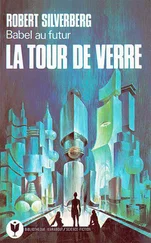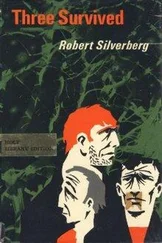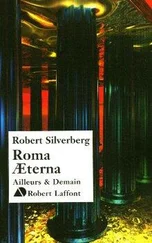“I like that thought,” said Krug. “A cathedral. I hadn’t seen it that way.” Krug caught sight of the data cube in Vargas’ right palm. “What do you have there?”
“A gift for you.”
“A gift?”
“We have tracked the signals to their source,” Vargas said. “I thought you would like to see their home star.”
Krug lurched forward. “Why did you wait so long to tell me? Why didn’t you say something while we were at the tower?”
“The tower was your show. This is mine. Shall I turn on the cube?”
Krug gestured impatiently toward the receptor slot. Vargas deftly inserted the cube and activated the scanner. Bluish beams of interrogatory light lanced into the small crystal lattice, mining for the stored bits of information.
The stars blossomed on the planetarium’s ceiling.
Krug was at home in the galaxy. His eyes picked out familiar landmarks: Sirius, Canopus, Vega, Capella, Arcturus, Betelgeuse, Altair, Fomalhaut, Deneb, the brightest beacons of the heavens, strewn spectacularly across the dome above him. He sought the near stars, those within the dozen-light-year radius that man’s stellar probes had reached in his own lifetime: Epsilon Indi, Ross 154, Lalande 21185, Barnard’s Star, Wolf 359, Procyn, 61 Cygni. He looked toward Taurus and found red Aldebaran glowing in the face of the Bull, with the Hyades clustered far behind, and the Pleiades burning in their brilliant shroud. Again and again the pattern on the dome shifted as focuses narrowed, as distances grew. Krug felt thunder in his breast. Vargas had said nothing since the planetarium had come to life.
“Well?” Krug demanded at last. “What am I supposed to see?”
“Look toward Aquarius,” said Vargas.
Krug scanned the northern sky. He followed the familiar track across: Perseus, Cassiopeia, Andromeda, Pegasus, Aquarius. Yes, there was the old Water-Carrier, between the Fishes and the Goat. Krug struggled to recall the name of some major star in Aquarius, but came up with nothing.
“So?” he asked.
“Watch. We sharpen the image now.”
Krug braced himself as the heavens rushed toward him. He could no longer make out the patterns of the constellations; the sky was tumbling, and all order was lost. When the motion ceased, he found himself confronted by a single segment of the galactic sphere, blown up to occupy the whole of the dome. Directly above him was the image of a fiery ring, dark at the core, rimmed by an irregular halo of luminous gas. A point of light glimmered at the nucleus of the ring.
Vargas said, “This is the planetary nebula NGC 7293 in Aquarius.”
“And?”
“It is the source of our signals.”
“How certain is this?”
“Absolutely,” the astronomer said. “We have parallax observations, a whole series of optical and spectral triangulations, several confirming occultations, and much more. We suspected NGC 7293 as the source from the beginning, but the final data was processed only this morning. Now we are sure.”
Dry-throated, Krug asked, “How distant?”
“About 300 light-years.”
“Not bad. Not bad. Beyond the reach of our probes, beyond the reach of efficient radio contact. But no problem for the tachyon-beam. My tower is justified.”
“And there still is hope of communication with the senders of the signals,” Vargas said. “What we all feared — that the signals came from some place like Andromeda, that the messages had begun the journey toward us a million years ago or more—”
“No chance of that now.”
“No. No chance.”
“Tell me about this place,” Krug said. “A planetary nebula — what kind of thing is that? How can a nebula be a planet?”
“Neither a planet nor a nebula,” said Vargas, beginning to pace again. “An unusual body. An extraordinary body.” He tapped the case of Centaurine proteoids. The quasi-living creatures, irritated, began to flow and twine. Vargas said, “This ring that you see is a shell, a bubble of gas, surrounding an O-type star. The stars of this spectral class are blue giants, hot, unstable, remaining on the main sequence only a few million years. Late in their life-cycle some of them undergo a catastrophic upheaval comparable to a nova; they hurl forth the outer layers of their structure, forming a gaseous shell of great size. The diameter of the planetary nebula you see is about 1.3 light years, and it is growing at a rate of perhaps fifteen kilometers a second. The unusual brightness of the shell, let me say, is the result of a fluorescence effect: the central star is producing great quantities of short-wavelength ultraviolet radiation, which is absorbed by the hydrogen of the shell, causing—”
“Wait a minute,” Krug said. “You’re telling me that this stellar system has been through something like a nova, that the explosion took place so recently that the shell is only 1.3 light-years across even though it’s growing at fifteen kilometers a second, and that the central sun is tossing out so much hard radiation that the shell is fluorescing?”
“Yes.”
“And you also want me to believe that there’s an intelligent race inside that furnace sending us messages?”
Vargas said, “There can be no doubt that the signals are coming from NGC 7293.”
“Impossible!” Krug roared. ”Impossible!” He slapped his fists against his hips. “A blue giant — only a couple of million years old to begin with. How do you evolve life at all, let alone an intelligent race? Then some kind of solar blowup — how does anything survive that? And the hard radiation? Tell me. Tell me. You want me to design a system that’s a good bet not to have life, I give you this god-damned planetary nebula! But how signals? From what?!”
“We have considered these factors,” Vargas said softly.
Quivering, Krug asked, “Then the signals are natural phenomena after all? Impulses radiated by the atoms of your filthy nebula itself?”
“We still believe the signals have an intelligent origin.”
The paradox baffled Krug. He retreated, sweating, confused. He was only an amateur astronomer; he had read plenty, he had stuffed himself with technical tapes and knowledge-enhancing drugs, he knew red giants from white dwarfs, he could draw the Hertzsprung-Russell diagram, he could look at the sky and point out Alpha Crucis and Spica, but all of it was data of an external kind, decorating the outer walls of his soul. He was not at home in it as Vargas was; he lacked a sense of the inwardness of the facts; he could not easily move beyond the bounds of the given data. Thus his awe of Vargas. Thus his discomfort now.
“Go on,” Krug muttered. “Tell me what. Tell me how.”
Vargas said, “There are several possibilities. All speculative, all guesses, you understand? The first and most obvious is that the signal-senders of NGC 7293 arrived there after the blowup, when things were quiet again. Say, within the last 10,000 years. Colonists from a deeper part of the galaxy — explorers — refugees — exiles — whatever, recent exiles.”
“And the hard radiation,” Krug said. “Even after things were quiet again, there’d still be radiation from that murderous blue sun.”
“Obviously they would thrive on it. We need sunlight for our life-processes; why not imagine a race that drinks its energy a little higher up the spectrum?”
Krug shook his head. “Okay, you make up races, I play advocatus diaboli . They eat hard radiation, you say. What about the genetic defects? What kind of stable civilization can they build with a mutation rate that high?”
“A race adapted to high radiation levels would probably have a genetic structure that isn’t as vulnerable to bombardment as ours. It would absorb all kinds of hard particles without mutating.”
Читать дальше












